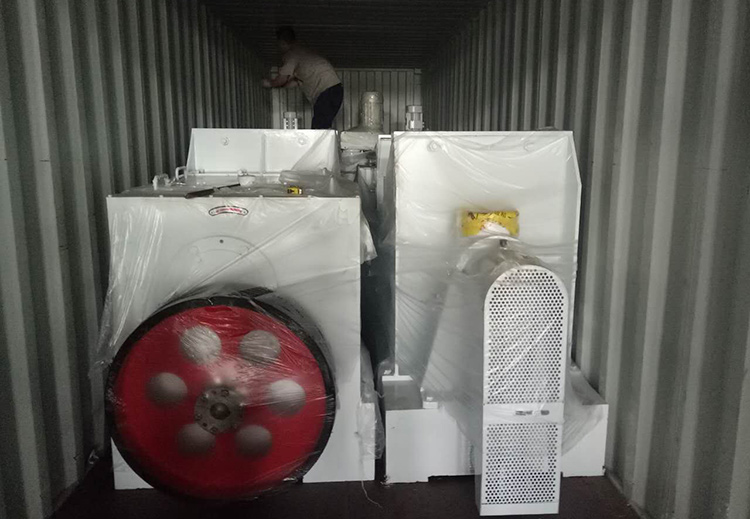nov . 27, 2024 11:38 Back to list
Vegetable Oil Refining Equipment for Efficient Oil Processing and Production
The Refinement of Vegetable Oil Machines and Processes
Vegetable oil is a staple in kitchens around the world, used for cooking, frying, and baking. Its versatility and health benefits, when compared to animal fats, have led to an increasing demand. To meet this demand, the refinement of vegetable oil is a crucial process, making the use of specialized machines integral to the production process. This article explores the machinery involved in refining vegetable oil and the importance of this process.
The Importance of Refining Vegetable Oil
Raw vegetable oil, extracted from seeds and plants, often contains impurities, free fatty acids, and other undesirable components. These can affect the oil's flavor, appearance, and shelf life. Refining is essential to improve the oil's quality and make it suitable for cooking and consumption. The refining process typically includes degumming, neutralization, bleaching, and deodorization, each requiring specific machinery to achieve the desired results.
Key Steps in the Refining Process
1. Degumming The first step in the refining process is degumming, which removes phospholipids and other hydratable impurities from crude oil. Specialized degumming machines use water or acids to separate these gum impurities from the oil. This step is crucial as it improves the oil's quality and stability.
2. Neutralization Once the oil has been degummed, it undergoes neutralization, which aims to remove free fatty acids. This process often employs neutralizing tanks equipped with agitators and pumps to mix the oil with an alkali solution. The resulting soapstock, formed during this reaction, is then separated from the neutralized oil, typically using centrifuges.
3. Bleaching After neutralization, the bleached oil undergoes bleaching to remove color pigments and residual impurities. Bleaching earth or activated carbon is used in this phase. Bleaching machines often include a mixing chamber where bleaching agents are added to the oil, followed by a filtration process that separates the color and impurities from the oil.
4. Deodorization The final step in the refining process is deodorization, which removes any remaining odors to make the oil more palatable. This process is conducted in deodorization towers where steam is passed through the oil at high temperatures under vacuum. This step ensures the oil has a neutral smell and taste, making it more appealing for consumers.
Types of Machines Used in Vegetable Oil Refining
vegetable oil refined machine

Several types of machines play pivotal roles in each step of the refining process
- Centrifuges Used for separating solids from liquids, centrifuges are key in both the neutralization and degumming processes to ensure the oil is free from impurities.
- Heat Exchangers These are utilized during deodorization to maintain the appropriate temperature while minimizing energy consumption.
- Filtration Systems Essential in both the bleaching and neutralization stages, these machines ensure that any remaining contaminants are removed effectively.
- Mixers and Agitators Vital for ensuring even mixing of oil with reagents during degumming and neutralization, these machines contribute significantly to the efficiency of the process.
The Role of Technology in Oil Refining
Advancements in technology have transformed the vegetable oil refining industry. The introduction of modern machinery has led to higher efficiency, reduced waste, and improved oil quality. Automated systems allow for precise control of temperature and pressure, ensuring optimal conditions throughout the refining process. Additionally, innovations in filtration technologies have resulted in more effective removal of impurities with minimal loss of oil.
Conclusion
The refinement of vegetable oil is a complex but essential process that relies heavily on sophisticated machines. From degumming to deodorization, each step plays a crucial role in ensuring the final product meets the highest standards of quality and safety. As the demand for vegetable oil continues to rise globally, the machinery and technologies used in these processes will likely evolve, enhancing efficiency and sustainability in oil production. The future of vegetable oil refining will depend on continuous innovation and adaptation to meet consumer needs while prioritizing health and environmental considerations.
-
HP 120 Model Cold Oil Press - Hebei Huipin Machinery Co., LTD | Automatic Temperature Control, Vacuum Filtration
NewsAug.09,2025
-
HP 120 Model Cold Oil Press - Hebei Huipin Machinery | Oil Extraction, Cold Pressing
NewsAug.09,2025
-
High-Efficiency Black Seed Oil Expeller & Press Machine
NewsAug.09,2025
-
HP 120 Cold Oil Press - Hebei Huipin Machinery|Cold Oil Extraction, Multi-Functional Press
NewsAug.09,2025
-
HP 120 Model Cold Oil Press - Hebei Huipin Machinery | Automated Oil Extraction, High Efficiency
NewsAug.08,2025
-
HP 120 Model Cold Oil Press-Hebei Huipin Machinery|Oil Extraction, High Efficiency
NewsAug.08,2025
